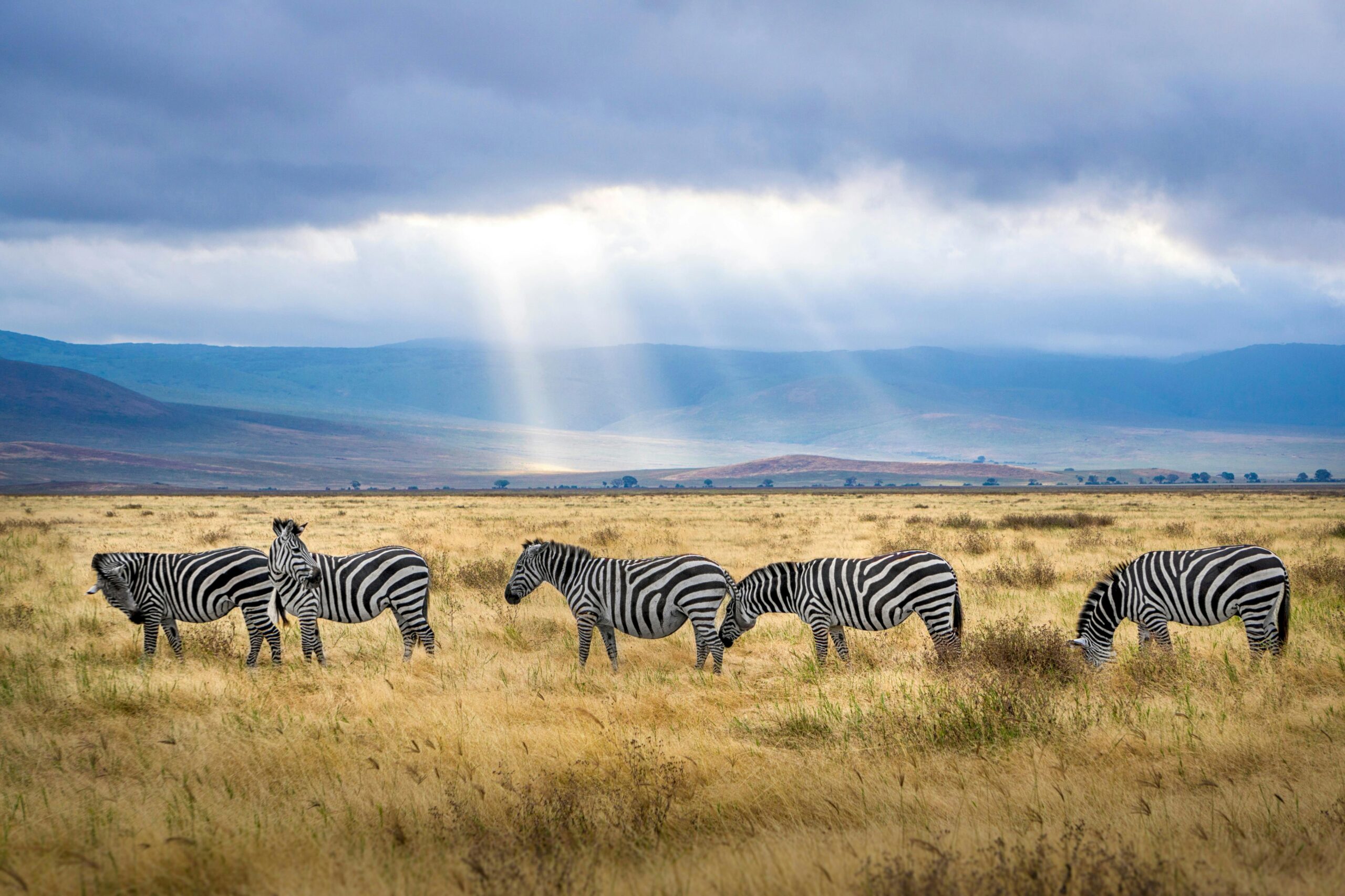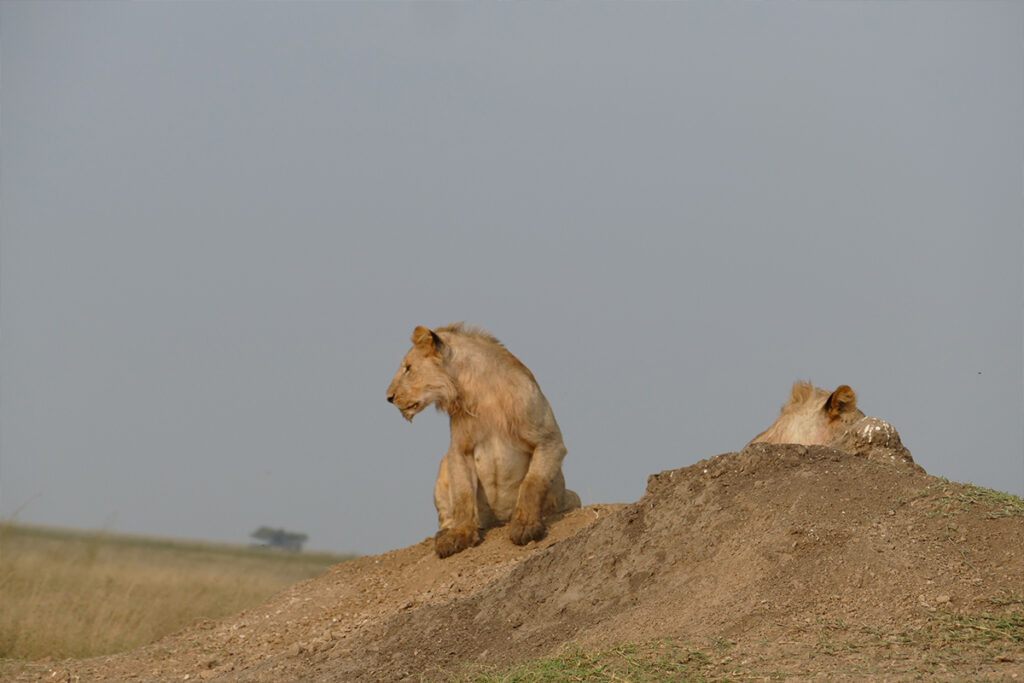Embarking on an eco-friendly safari in Tanzania might just be the most exhilarating, sustainable adventure you haven’t considered yet. Picture this: you’re quietly observing a family of elephants, and the only sound is the gentle rustling of the grass under their feet. Such experiences are made accessible through initiatives that prioritize low-impact travel without compromising the splendor of the wild.
Incorporating eco-friendly practices, Tanzania’s safari ventures now enforce guidelines that trace back to efforts initiated in the early 2000s. For instance, some camps rely almost entirely on solar energy, showcasing a significant shift towards renewable resources. By blending these innovations with deep-rooted conservation legacies, the safaris ensure an enriching, sustainable, and guilt-free African exploration.

What defines an eco-friendly safari in Tanzania?
An eco-friendly safari in Tanzania prioritizes sustainability and conservation. These safaris aim to minimize the environmental impact while maximizing wildlife protection. To achieve this, eco-lodges use renewable energy sources like solar power instead of traditional fossil fuels. Waste management practices are rigorously maintained to reduce pollution. For instance, according to this post, many eco-friendly camps focus on reducing waste by recycling and composting.
Wildlife protection is another key element of eco-friendly safaris. These tours support conservation projects that help endangered species. By limiting the number of visitors, the safari parks ensure that natural habitats are not overcrowded. Trained guides educate tourists about the importance of preserving biodiversity. This helps to spread awareness and encourage responsible behavior.
Local communities also play a crucial role in eco-friendly safaris. Sustainable tourism empowers local people by providing job opportunities and economic benefits. Some safaris include visits to local villages, where travelers can learn about indigenous cultures. By supporting local crafts and services, tourists help to sustain these communities. According to the article here, involving local communities ensures that they benefit directly from tourism.
Transport options are also designed to be eco-friendly. Many safari operators use vehicles that run on biofuels instead of regular diesel. Walking safaris and cycling tours are promoted to reduce carbon emissions. This not only conserves the environment but also offers a unique way to experience the wildlife. By focusing on sustainability, eco-friendly safaris provide memorable experiences while protecting Tanzania’s natural beauty.
The principles of sustainable tourism in Tanzania’s wild parks
Sustainable tourism in Tanzania’s wild parks is designed to protect wildlife and habitats. This approach ensures that natural resources are conserved for future generations. The parks follow strict guidelines to minimize human impact on nature. For example, limiting the number of visitors helps to reduce stress on the environment. Trained park rangers enforce these guidelines to ensure compliance.
Energy conservation is another important principle of sustainable tourism. Many lodges and camps in the parks use renewable energy sources such as solar power. This reduces the reliance on non-renewable resources like fossil fuels. By using sustainable energy, these accommodations lower their carbon footprint. This shift benefits both the environment and the local communities.
Sourcing food locally is a key part of sustainable tourism. Many eco-lodges purchase food from nearby farms and markets. This practice supports local economies and reduces transportation emissions. Fresh, local food also enhances the experience for visitors. By promoting local produce, parks help sustain regional agriculture.
Education and awareness play a significant role in sustainable tourism. Tourists are educated about conservation and responsible practices. This is often achieved through informational sessions and guided tours. By understanding the importance of sustainability, visitors are more likely to act responsibly. This collective effort aids in preserving Tanzania’s wild parks for the future.
Key benefits of choosing an eco-friendly safari
Choosing an eco-friendly safari provides numerous environmental benefits. These safaris aim to protect wildlife and their natural habitats. By minimizing carbon emissions and pollution, they maintain the ecosystem’s balance. Visitors can enjoy their adventure knowing they are leaving a smaller footprint. This responsible approach helps ensure that wildlife and nature are preserved for the future.
Eco-friendly safaris support local communities economically. Many eco-lodges employ local residents, providing job opportunities. Additionally, supporting local businesses, such as markets and crafts, boosts the area’s economy. This interaction helps communities thrive while preserving their cultural heritage. By choosing sustainable tourism, travelers directly contribute to the well-being of local people.
These safaris also offer unique, educational experiences for tourists. Guides educate visitors on conservation and environmental issues. Through these interactions, tourists gain a deeper understanding of the importance of protecting nature. Learning about the ecosystem enriches the overall experience. This knowledge often inspires lasting changes in behavior.
Safety is another major benefit of eco-friendly safaris. These tours follow strict guidelines to ensure the well-being of both animals and tourists. By maintaining distance, the safaris reduce stress on wildlife. This careful approach minimizes any risk of disturbing or harming the animals. Responsible tourism practices create a safer environment for everyone involved.
Steps taken by Tanzania to promote sustainable tourism
Tanzania has made significant efforts to promote sustainable tourism through policy development and enforcement. The government has implemented strict regulations to ensure that tourist activities don’t negatively impact the environment. By establishing protected areas and national parks, Tanzania has conserved vast portions of its natural landscape. These measures help maintain biodiversity and the thriving wildlife populations tourists love to see. Such policies also encourage tourism operators to adopt environmentally-friendly practices.
Education and awareness campaigns are crucial in promoting sustainable tourism. Tanzania educates both locals and tourists about the importance of conservation. Programs aim to raise awareness about threats to wildlife and the environment. By informing the public, the country fosters responsible behavior, encouraging everyone to protect natural resources. These campaigns often involve local communities, further strengthening conservation efforts.
Collaboration with international organizations is another step taken to enhance sustainable tourism. Tanzania partners with conservation groups to fund and manage projects. These partnerships provide technical assistance and financial resources to support sustainable initiatives. By working together, they create programs that balance tourism growth with environmental preservation. This collaboration brings a global perspective to Tanzania’s efforts in conservation.
Community involvement is central to sustainable tourism efforts. Local communities are engaged in decisions about tourism development and management. This inclusive approach ensures that tourism benefits reach those directly affected. Empowering local people helps preserve cultural traditions and values. Community-led tourism projects incentivize residents to actively participate in conservation activities.
Investment in sustainable infrastructure is another focus in promoting eco-friendly tourism. Many lodges and camps now use solar power and water-saving technologies. These eco-friendly innovations reduce the environmental impact of tourism activities. Such investments also demonstrate a commitment to preserving natural resources for future generations. By leading by example, Tanzania sets a standard for responsible tourism practices.

Frequently Asked Questions
Embarking on an eco-friendly safari in Tanzania brings unique opportunities and responsibilities. Here, we answer some common questions to guide your journey towards sustainable adventures.
1. What makes a safari eco-friendly?
An eco-friendly safari is one that minimizes its impact on the environment and supports wildlife conservation. This involves using renewable energy sources, like solar power, at camps and lodges. Additionally, these safaris often involve strict waste management practices to reduce pollution and help maintain the natural habitat.
Beyond environmental considerations, eco-friendly safaris also emphasize engaging local communities. By employing local guides and supporting nearby markets and artisans, these tours help boost the local economy. They provide authentic cultural experiences, making the safari both enriching for visitors and beneficial for local residents.
2. How do eco-friendly safaris benefit local communities?
Eco-friendly safaris contribute significantly to the local economy by creating jobs for residents. These jobs range from tour guides and lodge staff to transport operators. Additionally, many safaris purchase supplies, including food, from local vendors. This not only supports community businesses but also encourages sustainable practices within the village.
Moreover, these safaris promote cultural exchange, providing an avenue for locals to share their heritage with tourists. By participating in community-led initiatives, tourists gain a deeper understanding of local cultures. This interaction fosters mutual respect and understanding, aligning with sustainable tourism goals.
3. What is the role of renewable energy in eco-friendly safaris?
Renewable energy plays a crucial role in reducing a safari’s environmental impact. Many eco-lodges and camps use solar panels to generate electricity. This helps decrease reliance on fossil fuels, thus reducing carbon emissions. Utilizing renewable resources ensures that safaris maintain energy efficiency while preserving the natural environment.
Furthermore, renewable energy systems often integrate water-saving technologies. Systems like rainwater collection and filtration support sustainable water use. These efforts collectively ensure that eco-friendly safaris leave a minimal ecological footprint, preserving the environment for future generations.
4. Are eco-friendly safaris more expensive than traditional ones?
Eco-friendly safaris may sometimes cost more due to their focus on sustainable practices. The additional costs often result from implementing renewable energy systems and sustainable waste practices. However, these investments enhance the overall experience by aligning tourism with conservation goals.
Many travelers find the extra cost worthwhile for the unique and responsible experiences they offer. Knowing their trip supports environmental and community initiatives adds value. Hence, while potentially more expensive, the benefits often outweigh the costs in contributing to sustainable tourism.
5. Can families enjoy eco-friendly safaris in Tanzania?
Absolutely, families can have memorable experiences on eco-friendly safaris. These safaris offer educational opportunities for children to learn about wildlife and conservation. Many camp programs include activities tailored for all ages, ensuring an adventurous and engaging experience for every family member.
Moreover, family-friendly safaris frequently focus on safety and accessibility. Guides are well-trained to ensure a secure environment while providing enriching information. Families can learn together, making it an educational and bonding experience. This approach enriches travel experiences beyond traditional holidays.



